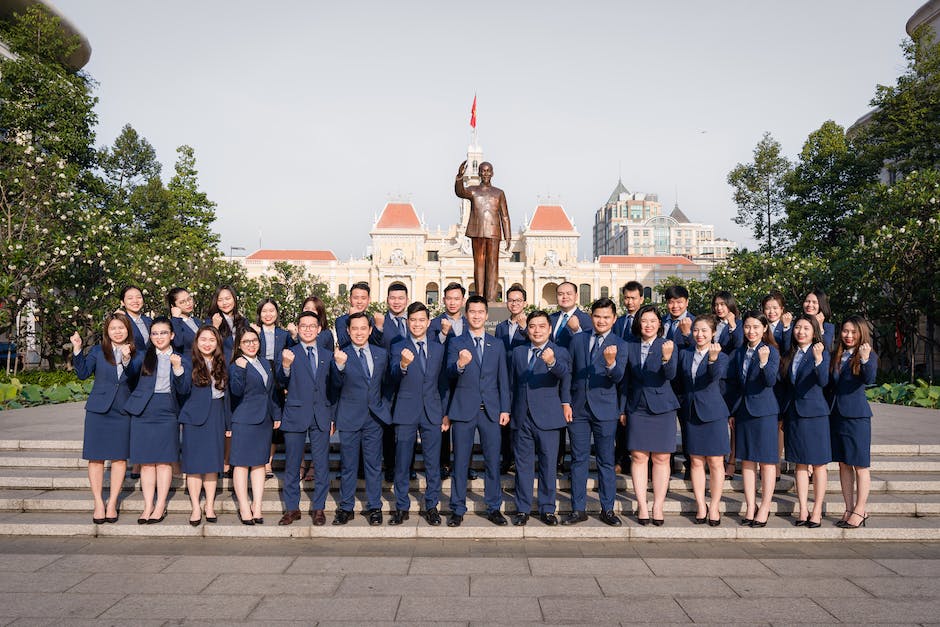Table of Contents
- Introduction
- Setting Clear Goals for the Year-End Review
- Preparing for the Performance Evaluation Meeting
- Reflecting on Achievements and Areas for Improvement
- Seeking Feedback from Colleagues and Supervisors
- Addressing Challenges and Overcoming Obstacles
- Developing a Plan for Professional Growth and Development
- Communicating Effectively During the Review Process
- Following Up on Action Items and Implementing Feedback
- Q&A
- Conclusion
“Navigate your way to success with our year-end performance review guide.”
Introduction
Navigating Year-End Performance Reviews can be a stressful and important time for employees. It is a time to reflect on accomplishments, set goals for the upcoming year, and receive feedback from supervisors. This process can be daunting, but with preparation and a positive attitude, employees can make the most out of their performance review.
Setting Clear Goals for the Year-End Review
As the end of the year approaches, many employees find themselves preparing for their annual performance reviews. These reviews are a crucial opportunity for both employees and managers to reflect on the past year’s accomplishments, set goals for the upcoming year, and discuss areas for improvement. Setting clear goals for the year-end review is essential for ensuring a productive and meaningful conversation.
One of the first steps in setting clear goals for the year-end review is to reflect on the goals that were set at the beginning of the year. Take some time to review the goals that were established at the start of the year and assess your progress towards achieving them. Consider what went well and what could have been improved upon. This reflection will help you identify areas where you excelled and areas where you may need to focus more attention in the coming year.
In addition to reflecting on past goals, it is important to set new goals for the upcoming year. Think about what you hope to achieve in the next year and how these goals align with the overall objectives of your team and organization. Setting specific, measurable, achievable, relevant, and time-bound (SMART) goals will help you stay focused and motivated throughout the year.
When setting goals for the year-end review, it is important to consider both short-term and long-term objectives. Short-term goals can help you make progress towards larger, more complex goals, while long-term goals can provide a sense of direction and purpose. By setting a mix of short-term and long-term goals, you can ensure that you are making progress towards your overall objectives while also celebrating smaller victories along the way.
It is also important to communicate your goals with your manager or supervisor. By sharing your goals with your manager, you can ensure that they are aligned with the expectations of your role and the needs of your team. Your manager can provide feedback on your goals, offer support and guidance, and help you identify any potential roadblocks that may hinder your progress.
In addition to setting goals for the year-end review, it is important to track your progress throughout the year. Keep a record of your accomplishments, challenges, and areas for improvement. By regularly reviewing your progress towards your goals, you can make adjustments as needed and stay on track to achieve your objectives.
As the year comes to a close, take some time to prepare for your year-end review. Review your goals, assess your progress, and identify areas for improvement. By setting clear goals for the year-end review, you can ensure a productive and meaningful conversation with your manager that will help you grow and develop in your role.
Preparing for the Performance Evaluation Meeting
As the end of the year approaches, many employees find themselves preparing for their annual performance review. This meeting can be a source of anxiety for some, as it often involves feedback on their work over the past year and discussions about goals for the upcoming year. However, with proper preparation and a positive attitude, employees can navigate their performance review with confidence and make the most out of the feedback they receive.
One of the first steps in preparing for a performance evaluation meeting is to gather feedback from colleagues and supervisors throughout the year. Keeping track of accomplishments, challenges, and areas for improvement can help employees have a more comprehensive understanding of their performance and be better prepared to discuss it during the meeting. This feedback can also help employees identify areas where they have excelled and areas where they may need to focus on improvement.
In addition to gathering feedback, employees should also take the time to reflect on their own performance over the past year. This self-assessment can help employees identify their strengths and weaknesses, as well as set goals for the upcoming year. By taking an honest look at their performance, employees can better prepare themselves for the feedback they will receive during the performance evaluation meeting.
Another important aspect of preparing for a performance evaluation meeting is to review any goals or objectives that were set at the beginning of the year. By reviewing these goals, employees can assess their progress and determine whether they have met, exceeded, or fallen short of their expectations. This can help employees have a more productive discussion with their supervisor during the meeting and set new goals for the upcoming year.
It is also important for employees to come to the performance evaluation meeting with a positive attitude. While receiving feedback on their performance can be challenging, it is important for employees to approach the meeting with an open mind and a willingness to learn and grow. By maintaining a positive attitude, employees can make the most out of the feedback they receive and use it as an opportunity for personal and professional development.
During the performance evaluation meeting, employees should be prepared to discuss their accomplishments, challenges, and areas for improvement. It is important for employees to be honest and open during these discussions, as this can help them receive more meaningful feedback from their supervisor. Employees should also be prepared to ask questions and seek clarification on any feedback they receive, as this can help them better understand their performance and set goals for the future.
In conclusion, preparing for a performance evaluation meeting can be a daunting task for many employees. However, by gathering feedback, reflecting on their own performance, reviewing goals, maintaining a positive attitude, and being prepared to discuss their accomplishments and challenges, employees can navigate their performance review with confidence and make the most out of the feedback they receive. By approaching the meeting with a proactive mindset and a willingness to learn and grow, employees can use their performance evaluation as an opportunity for personal and professional development.
Reflecting on Achievements and Areas for Improvement

As the end of the year approaches, many employees find themselves preparing for their annual performance reviews. This can be a stressful time for some, as they reflect on their achievements and areas for improvement over the past year. However, with the right mindset and approach, navigating year-end performance reviews can be a valuable opportunity for growth and development.
One of the first steps in preparing for a performance review is to reflect on your achievements throughout the year. This can include projects you successfully completed, goals you met or exceeded, and any positive feedback you received from colleagues or supervisors. Taking the time to document these accomplishments can help you articulate your value to the organization during your review.
It’s also important to consider areas for improvement. This can be a challenging exercise, as it requires a level of self-awareness and humility. However, acknowledging your weaknesses and areas where you can grow is a crucial step in professional development. Consider seeking feedback from colleagues or supervisors to gain a more well-rounded perspective on your performance.
During your performance review, it’s important to approach the conversation with an open mind and a willingness to listen. Be prepared to discuss your achievements and areas for improvement in a constructive and professional manner. Remember that feedback is a gift, and use this opportunity to learn and grow as a professional.
Transitional phrases such as “in addition,” “furthermore,” and “on the other hand” can help guide the reader through the article and connect ideas seamlessly. By using these phrases, you can create a cohesive and logical flow that keeps the reader engaged and informed.
Reflecting on your achievements and areas for improvement is an important part of the performance review process. By taking the time to assess your performance over the past year, you can gain valuable insights into your strengths and weaknesses and set goals for the future. Remember that a performance review is not just a one-time event, but an ongoing process of growth and development.
In conclusion, navigating year-end performance reviews can be a valuable opportunity for professional growth and development. By reflecting on your achievements and areas for improvement, approaching the conversation with an open mind, and using feedback as a tool for learning, you can make the most of this important process. Remember that a performance review is not just a time to receive feedback, but a chance to reflect on your progress and set goals for the future. With the right mindset and approach, you can turn your performance review into a positive and productive experience.
Seeking Feedback from Colleagues and Supervisors
As the end of the year approaches, many employees find themselves preparing for their annual performance reviews. These evaluations are a crucial opportunity to reflect on the past year’s accomplishments, set goals for the future, and receive feedback from colleagues and supervisors. Seeking feedback from others can provide valuable insights into one’s strengths and areas for improvement, ultimately helping to enhance professional growth and development.
When seeking feedback from colleagues and supervisors, it is important to approach the process with an open mind and a willingness to listen. Constructive criticism can be difficult to hear, but it is essential for personal and professional growth. By actively seeking feedback, employees demonstrate a commitment to self-improvement and a desire to excel in their roles.
One effective way to solicit feedback from colleagues and supervisors is to schedule one-on-one meetings to discuss performance. This allows for a more personalized and in-depth conversation, where specific examples of strengths and areas for improvement can be discussed. It is important to come prepared with specific questions and examples of work to facilitate a productive discussion.
Another approach to seeking feedback is to request anonymous feedback through surveys or feedback forms. This can provide a more comprehensive view of one’s performance, as colleagues and supervisors may feel more comfortable providing honest feedback when their responses are anonymous. However, it is important to take this feedback with a grain of salt and consider the source when evaluating the feedback received.
In addition to seeking feedback directly, employees can also observe their interactions with colleagues and supervisors to gain insights into their performance. Pay attention to non-verbal cues, such as body language and tone of voice, as these can provide valuable information about how others perceive your performance. Additionally, seek out opportunities for informal feedback during team meetings or casual conversations to gather insights into your performance.
When receiving feedback from colleagues and supervisors, it is important to approach the process with a growth mindset. Instead of viewing feedback as criticism, see it as an opportunity for learning and improvement. Reflect on the feedback received and identify actionable steps for addressing areas of improvement. Set specific goals for the upcoming year based on the feedback received to demonstrate a commitment to growth and development.
Ultimately, seeking feedback from colleagues and supervisors is a valuable tool for professional growth and development. By actively soliciting feedback, employees demonstrate a commitment to self-improvement and a desire to excel in their roles. Approach the feedback process with an open mind and a willingness to listen, and use the insights gained to set goals for the future. By navigating year-end performance reviews with a proactive approach to seeking feedback, employees can enhance their professional development and achieve success in their roles.
Addressing Challenges and Overcoming Obstacles
As the end of the year approaches, many employees find themselves preparing for their annual performance reviews. While these evaluations can be a valuable opportunity for feedback and growth, they can also be a source of stress and anxiety for many individuals. Navigating year-end performance reviews can be challenging, but with the right approach and mindset, employees can overcome obstacles and make the most of this important process.
One common challenge that employees face during performance reviews is receiving constructive criticism. It can be difficult to hear feedback that is less than positive, but it is important to remember that constructive criticism is meant to help employees improve and grow in their roles. Instead of becoming defensive or dismissive, employees should approach feedback with an open mind and a willingness to learn. By taking feedback seriously and using it as an opportunity for self-reflection and growth, employees can turn criticism into a valuable tool for personal and professional development.
Another challenge that employees may encounter during performance reviews is setting and achieving goals. Many employees struggle to identify meaningful and achievable goals for themselves, which can make it difficult to track progress and demonstrate growth over time. To overcome this obstacle, employees should take the time to reflect on their strengths, weaknesses, and areas for improvement. By setting specific, measurable, achievable, relevant, and time-bound (SMART) goals, employees can create a roadmap for success and hold themselves accountable for their progress throughout the year.
In addition to receiving feedback and setting goals, employees may also face challenges related to communication and collaboration during performance reviews. It is important for employees to communicate openly and honestly with their managers about their performance, goals, and expectations. By fostering a culture of open communication and collaboration, employees can build trust and mutual respect with their managers and colleagues, which can lead to more productive and effective performance reviews.
One final challenge that employees may encounter during performance reviews is managing their emotions and expectations. It is natural to feel nervous or anxious before a performance review, but it is important for employees to remain calm, composed, and professional throughout the process. By managing their emotions and expectations, employees can approach performance reviews with a positive attitude and a willingness to learn and grow. By staying focused on their goals and objectives, employees can overcome obstacles and make the most of their performance reviews.
In conclusion, navigating year-end performance reviews can be challenging, but with the right approach and mindset, employees can overcome obstacles and make the most of this important process. By receiving feedback with an open mind, setting and achieving goals, communicating effectively, and managing their emotions and expectations, employees can turn performance reviews into a valuable opportunity for growth and development. By approaching performance reviews with a positive attitude and a willingness to learn, employees can set themselves up for success in the year ahead.
Developing a Plan for Professional Growth and Development
As the end of the year approaches, many employees find themselves preparing for their annual performance reviews. These evaluations are a crucial opportunity for both employees and employers to reflect on the past year’s accomplishments, set goals for the future, and discuss areas for improvement. Navigating year-end performance reviews can be a daunting task, but with the right approach, employees can use this opportunity to develop a plan for professional growth and development.
One of the first steps in preparing for a performance review is to reflect on your accomplishments over the past year. Take some time to review your goals from the previous year and assess how well you have met them. Consider any projects you have completed, new skills you have acquired, or challenges you have overcome. By taking stock of your achievements, you can provide concrete examples of your contributions during the review.
In addition to reflecting on your accomplishments, it is important to identify areas for improvement. Think about any feedback you have received throughout the year, both positive and negative, and consider how you can use this feedback to grow professionally. Be honest with yourself about your strengths and weaknesses, and be prepared to discuss them openly during your performance review.
Once you have reflected on your accomplishments and areas for improvement, it is time to set goals for the future. Use your performance review as an opportunity to discuss your career aspirations and how you can work towards achieving them. Consider what skills you need to develop, what projects you want to work on, and what opportunities you want to pursue in the coming year. By setting clear and achievable goals, you can demonstrate your commitment to professional growth and development.
During your performance review, be prepared to discuss your goals with your manager and seek their input on how you can achieve them. Your manager can provide valuable guidance and support as you work towards your goals, so be open to their feedback and suggestions. Remember that professional growth is a collaborative process, and by working together with your manager, you can create a plan that will help you succeed in your career.
In addition to setting goals for the future, it is important to discuss any training or development opportunities that can help you achieve those goals. Whether it is attending a conference, taking a course, or participating in a mentoring program, investing in your professional development can help you grow and advance in your career. Be proactive in seeking out these opportunities and be prepared to discuss them during your performance review.
Finally, remember that your performance review is not just a one-time event, but an ongoing process of reflection and growth. Use the feedback you receive during your review to make adjustments to your plan for professional development, and continue to set new goals and seek out new opportunities throughout the year. By taking a proactive approach to your professional growth and development, you can position yourself for success in the coming year and beyond.
Communicating Effectively During the Review Process
As the end of the year approaches, many employees find themselves preparing for their annual performance reviews. These reviews can be a source of anxiety for some, as they often involve feedback on their work over the past year and discussions about goals for the upcoming year. However, with the right approach and effective communication, employees can navigate the review process with confidence and use it as an opportunity for growth and development.
One of the key aspects of a successful performance review is effective communication. This involves not only being able to clearly articulate your accomplishments and areas for improvement but also being open to receiving feedback from your manager. It is important to approach the review process with a positive attitude and a willingness to engage in a constructive dialogue about your performance.
When preparing for your performance review, take the time to reflect on your achievements over the past year. Consider the goals you set for yourself and whether you were able to meet or exceed them. Be prepared to provide specific examples of your work and how it has contributed to the success of your team or organization. This will not only demonstrate your value as an employee but also show that you are actively engaged in your work and committed to your professional development.
During the review meeting, be sure to actively listen to your manager’s feedback and ask clarifying questions if needed. It is important to show that you are receptive to feedback and willing to make improvements based on the feedback you receive. Remember that the goal of the performance review is not to criticize your work but to help you grow and develop as an employee.
When discussing areas for improvement, be open and honest about your challenges and how you plan to address them. This shows that you are self-aware and proactive in seeking solutions to improve your performance. It is also important to communicate your career goals and aspirations to your manager so that they can provide guidance and support in helping you achieve them.
After the performance review, take the time to reflect on the feedback you received and create a plan for how you will implement any changes or improvements. This may involve setting specific goals for the upcoming year and regularly checking in with your manager to track your progress. By taking ownership of your development and actively seeking opportunities for growth, you can demonstrate your commitment to your professional development and contribute to the success of your team and organization.
In conclusion, effective communication is key to navigating year-end performance reviews successfully. By approaching the review process with a positive attitude, actively listening to feedback, and being open to making improvements, employees can use the review process as an opportunity for growth and development. By taking ownership of their development and actively seeking opportunities for growth, employees can demonstrate their commitment to their professional development and contribute to the success of their team and organization.
Following Up on Action Items and Implementing Feedback
As the year comes to a close, many employees find themselves in the midst of year-end performance reviews. These reviews are a crucial part of the professional development process, providing employees with valuable feedback on their performance over the past year and setting goals for the year ahead. However, the real work begins after the performance review is over. Following up on action items and implementing feedback are key steps in ensuring that the feedback received during the performance review is put into practice and leads to tangible improvements in performance.
One of the first steps in following up on action items from a performance review is to review the feedback received and identify specific areas for improvement. This may involve revisiting the performance review document or meeting notes to refresh your memory on the feedback provided by your manager. It is important to take a proactive approach to addressing any areas for improvement identified during the performance review, as this demonstrates a commitment to personal growth and development.
Once you have identified specific areas for improvement, it is important to create a plan for addressing these areas. This may involve setting specific goals and milestones for improvement, as well as identifying resources or support that may be needed to achieve these goals. It can be helpful to schedule regular check-ins with your manager or mentor to track progress towards your goals and receive additional feedback and guidance.
In addition to following up on action items, it is important to implement feedback received during the performance review. This may involve making changes to your work habits or processes, seeking out additional training or development opportunities, or adjusting your approach to specific tasks or projects. It is important to approach this process with an open mind and a willingness to make changes, as this will demonstrate a commitment to continuous improvement and growth.
Implementing feedback may also involve seeking out additional feedback from colleagues or stakeholders. This can provide valuable insights into your performance from different perspectives and help you identify blind spots or areas for improvement that may not have been addressed during the performance review. It is important to approach this process with humility and a willingness to listen to feedback, even if it is difficult to hear.
Finally, it is important to track your progress towards your goals and regularly assess your performance. This may involve keeping a journal or log of your accomplishments and areas for improvement, as well as seeking out feedback from colleagues or stakeholders on an ongoing basis. By regularly assessing your performance and seeking out feedback, you can ensure that you are making progress towards your goals and continuously improving your performance.
In conclusion, following up on action items and implementing feedback are crucial steps in ensuring that the feedback received during a performance review leads to tangible improvements in performance. By taking a proactive approach to addressing areas for improvement, creating a plan for growth, and seeking out additional feedback, you can demonstrate a commitment to personal development and growth. By tracking your progress towards your goals and regularly assessing your performance, you can ensure that you are continuously improving and growing as a professional.
Q&A
1. What is a year-end performance review?
A year-end performance review is a formal evaluation of an employee’s performance over the past year.
2. Who typically conducts year-end performance reviews?
Year-end performance reviews are typically conducted by a manager or supervisor.
3. What is the purpose of a year-end performance review?
The purpose of a year-end performance review is to provide feedback to employees on their performance, set goals for the upcoming year, and discuss opportunities for growth and development.
4. How should employees prepare for a year-end performance review?
Employees should gather any relevant documentation, reflect on their accomplishments and areas for improvement, and be prepared to discuss their performance with their manager.
5. What should employees expect during a year-end performance review?
Employees can expect to receive feedback on their performance, discuss their goals and objectives, and receive guidance on areas for improvement.
6. How should employees handle constructive criticism during a year-end performance review?
Employees should listen to the feedback, ask clarifying questions, and be open to suggestions for improvement.
7. What should employees do after a year-end performance review?
Employees should take the feedback received during the review seriously, set goals for the upcoming year, and work on areas for improvement.
8. How can employees make the most of their year-end performance review?
Employees can make the most of their year-end performance review by actively participating in the discussion, asking for feedback, and using the feedback to set goals for the future.
Conclusion
In conclusion, navigating year-end performance reviews is essential for both employees and managers to ensure clear communication, goal setting, and feedback for professional growth and development. It is important to approach these reviews with a positive attitude, preparation, and open communication to make the most out of the feedback provided.





